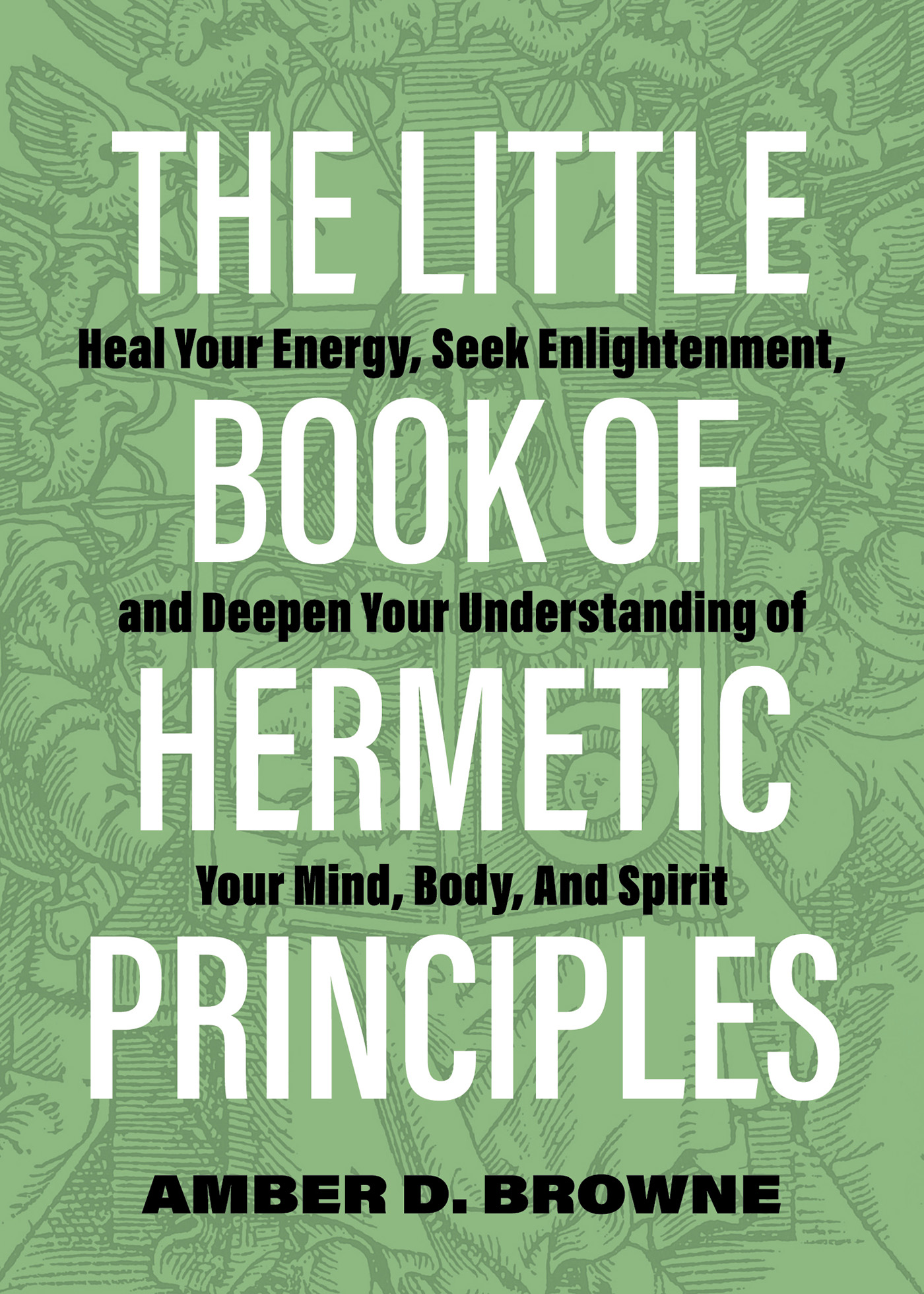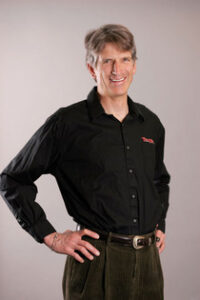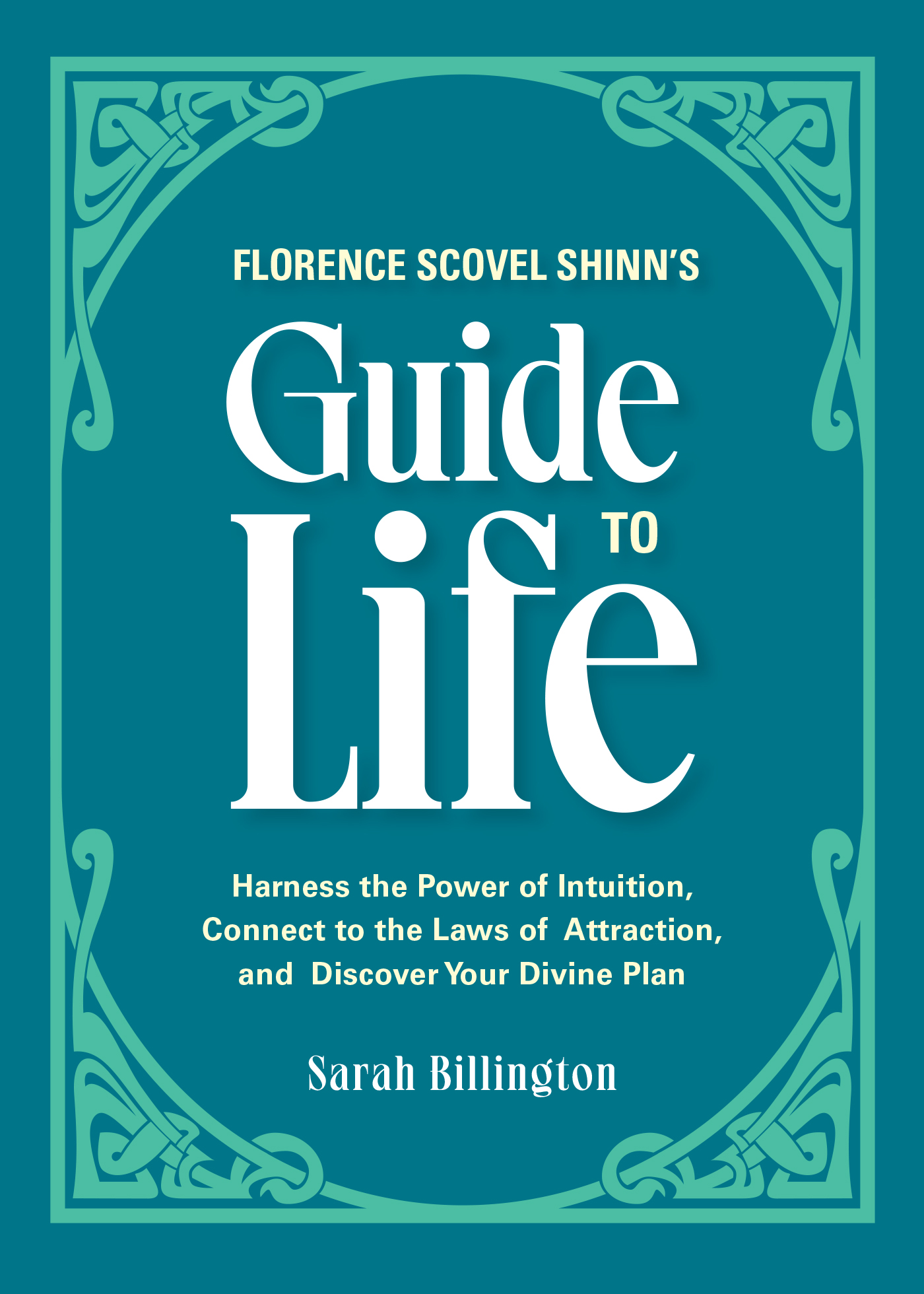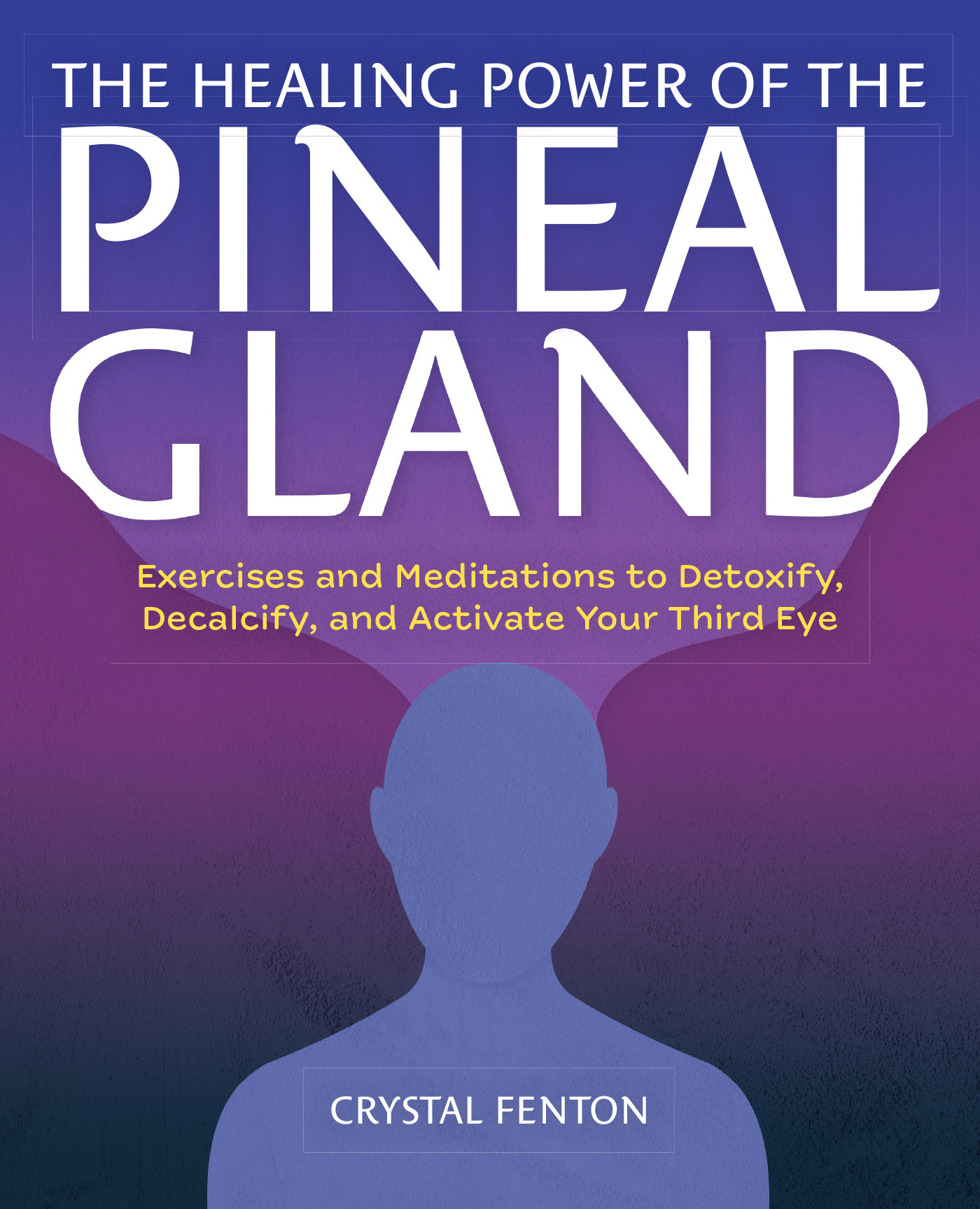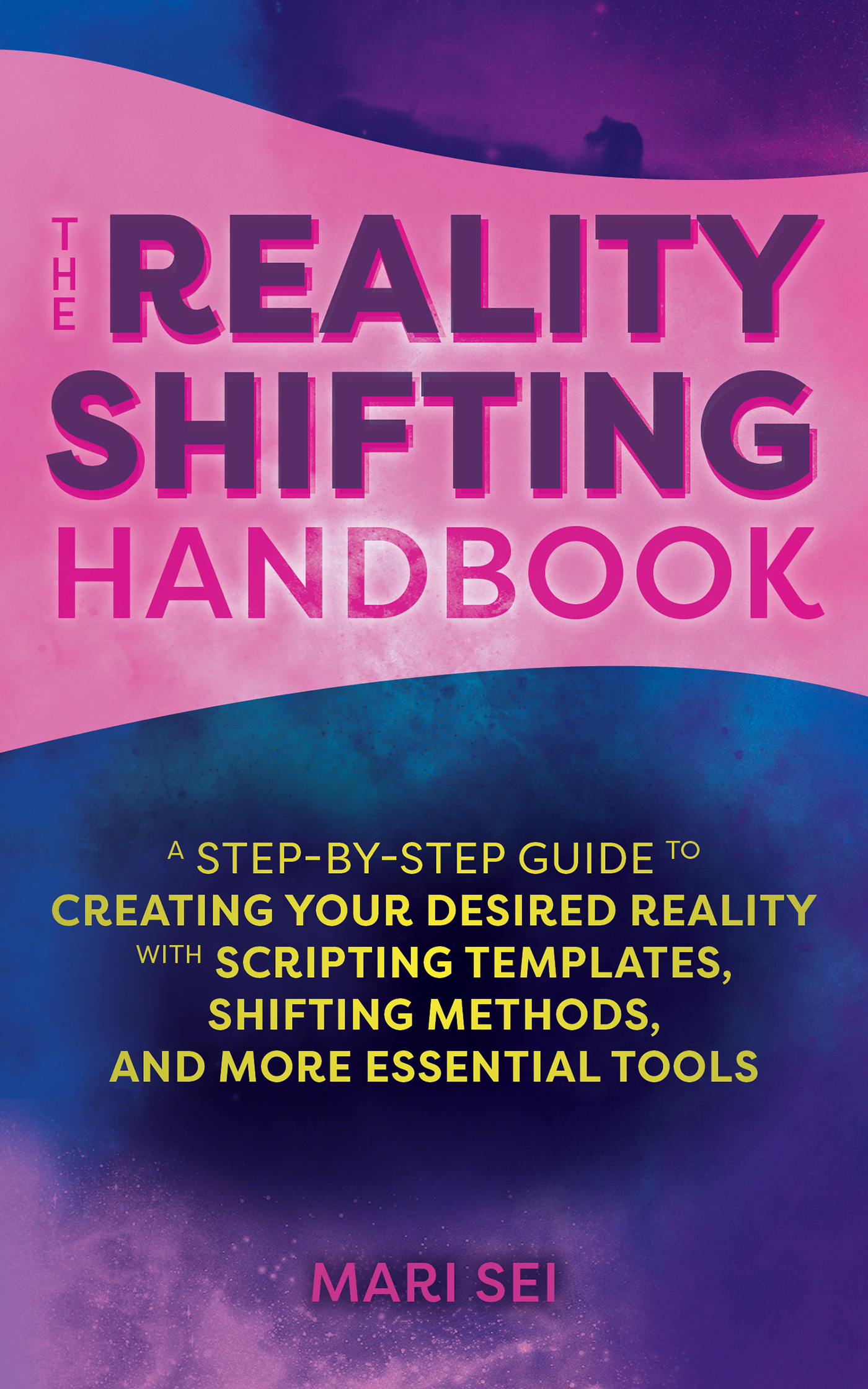
The Hermetic Principles: Implement Ancient Teachings in Modern Times
- Book Sample /
- Mind, Body, Spirit
With constant turmoil and conflict in today’s world, it might be difficult to find the positives in life. It can be challenging to focus energy on what’s important or control thoughts and emotions. Although it may seem impossible at times, improving the mind, body, and spirit is attainable. Author Amber D. Browne offers guidance to change one’s life for the better according to the ancient teachings of Hermes Trismegistus in her new book, The Little Book of Hermetic Principles: Heal Your Energy, Seek Enlightenment, and Deepen Your Understanding of Your Mind, Body, and Spirit.
The power of the mind. Recognizing and elevating energy. Determining cause and effect. Focusing on gratitude. Developing more empathy. All of these concepts and more are included in The Little Book of Hermetic Principles. Perfect for beginners, this little book breaks down the ancient Hermetic philosophy into easily consumable chapters and gives actionable tips from experts to help readers progress toward mindfulness and enlightenment.
The following article includes some of the main teachings found in The Little Book of Hermetic Principles, along with helpful excerpts from the book.
The Hermetic Principles of Mentalism
The Hermetic principle of mentalism focuses on the power of the mind with guidance on how to develop a growth mindset, improve brain function through exercise, manifest reality through visualization, and find meaning and symbolism in everyday occurrences. Excerpt from pages 46–47 follows.
“It’s all in your head.” Sometimes this phrase can lend courage to someone who isn’t sure whether to take a risk, such as jumping off the high dive at the local pool. In a different situation, these words might help a dreamer understand that the shadow in the corner seen upon waking from a nightmare is imaginary, an illusion created by the mind. But for the diver feeling the fear of smacking the water below or the dreamer waking in a panic, these “all in your head” bits of reality evoke real feelings and emotions. The principle of mentalism explains that events, feelings, and so on, may come true for people based on their perceptions of reality, their thoughts.
The Hermetic Principle of Vibration
This chapter of the book focuses on healing energy through nutrition, breathwork, spending time in nature, and more. Excerpt from pages 93–94 including quotes from Jenny Parten, Reiki master and medicine woman, follows.
The principle of vibration works in tandem with the first Hermetic principle, the principle of mentalism. “Everything is a choice, and we often don’t realize that. We think that life just unfolds before us, and then we just have to deal with the cards that are handed to us. It’s not like that at all,” Parten explains. You can control vibration by taking conscious actions and making conscious choices about what type of vibrational frequency you engage in and support. “If I’m staying stuck in these old patterns of behavior because I’m continuously playing over these old patterns in my mind, I’m constantly thinking about the past, I’m constantly focused on my trauma, I’m constantly thinking about the quote, unquote negative, [then] I’m bringing more of that energy into my experience all the time.” Instead of focusing on the negative, work to change your mindset to focus more on the positive, or “the glass is half full,” scenario. This will increase your vibration so that you express a more positive vibe.
The Hermetic Principles of Rhythm
The following is an excerpt from page 134 of the chapter about the Hermetic principle of rhythm, which includes the benefits of gratitude, music, and serving others.
Throughout life, people experience the good with the bad. Each day has ups and downs as people experience the emotional pull of other people and of events. According to the Hermetic principle of rhythm, whatever happens during one day, one week, one month, one year, and so on, will fall back into balance as the pendulum swings.
The Hermetic Principle of Gender
This chapter offers guidance on how the reader can develop different characteristics such as assertiveness or empathy and enhance creativity. An excerpt from page 163–164 follows.
According to the Hermetic principle of gender in The Kybalion, everything has both masculine and feminine qualities. These qualities are not biological characteristics, such as sex organs or the physical body of a man or woman, but more the character traits of the person, the energetic qualities that the person exudes. The Kybalion states that the masculine quality is considered positive and the act of being, while the feminine is considered negative and the act of becoming. This is not to say that the female gender or a person who displays more feminine qualities is negative in personality or mood. It has more to do with how the energies work.
Mystical Teachings of Hermes Trismegistus
The mystical teachings of Hermes Trismegistus, who is often referred to as the father of astrology and alchemy, are also reviewed in The Little Book of Hermetic Principles. Readers will learn more about the traditional and modern studies of astrology and alchemy, as well as how to see magic in everyday life.
With The Little Book of Hermetic Principles, people of all ages can learn how to be more mindful of their own thoughts, emotions, and perceptions to ultimately gain a better understanding of themselves, the world, and everyone in it.
Pre-order your copy of The Little Book of Hermetic Principles here!
The Little Book of Hermetic Principles
Discover how the wisdom and philosophy of Hermes Trismegistus and Hermeticism can be applied to modern life in this beginner-friendly guide to the Hermetic principles. Hermes Trismegistus is believed to be one of the founders of philosophy, and his teachings can be connected to Stoicism, Platonism, esotericism, the Enlightenment, and
Learn more